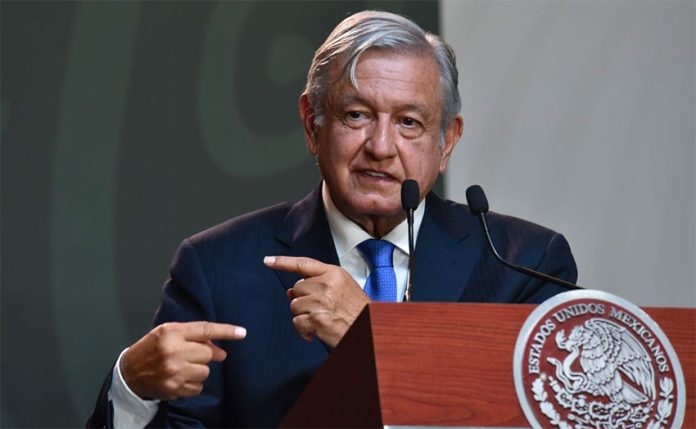Fear and uncertainty about the policy agenda of President López Obrador are paralyzing investment, according to high-ranking business executives who spoke to the news agency Bloomberg.
A report published today said that about half a dozen executives who met with Bloomberg in Mexico City last week described navigating the president’s policies and abrupt pronouncements as a struggle.
The most common word that the executives used to describe López Obrador’s decision-making process on issues that affect them was “erratic,” Bloomberg said.
Speaking on the condition of anonymity, most expressed support for the government’s implementation of austerity measures and its crusade against corruption – many said that the scourge spiraled out of control during Enrique Peña Nieto’s presidency – but rejected the decisions to cancel the Texcoco airport project, freeze new energy auctions and take legal action that seeks to annul clauses in natural gas pipelines.
Amid uncertainty about what the president might do next, the executives said they closely watch López Obrador’s daily press conferences for clues.
In that context, no one is investing, they said. Many of the executives said they see the beginning of a downward economic trend for Mexico although their views differed about how steep the slope will be.
In any case, the situation raises a range of questions, Bloomberg said: “Invest now? Wait to invest? Simply keep the business on autopilot or consider selling assets? Put resources toward other countries?”
Gross fixed investment in Mexico fell 7.4% in May, the worst monthly performance in more than two years, while the economy only narrowly avoided entering a technical recession by recording 0.1% growth between April and June after a 0.2% contraction in the first quarter.
Although López Obrador has clung to his forecast of 2% growth in 2019, his own government predicts an expansion of just 1.1%.
The International Monetary Fund slashed its growth outlook for the Mexican economy to 0.9% from 1.6% last month while the Bank of America and Citibanamex cut their forecasts to just 0.5% and 0.2%, respectively.
Bloomberg said that the “mix of AMLO’s austerity drive and the uncertainty among business leaders” is taking a heavy toll on the economy.
The news agency noted that while the president is curtailing government spending in many areas, he has allocated significant funding to Pemex, the beleaguered state oil company.
It questioned the logic of building a new oil refinery on the Tabasco coast when existing refineries are operating at or below 30% capacity.
Considering the president’s track record on canceling and challenging investment projects, Bloomberg said the business community is waiting for “a sign – any sign” that López Obrador can generate an economic and legal environment in which investors have the confidence they need to make decisions.
The news agency noted that the president told its editor-in-chief John Micklethwait in an interview last week that he respects contracts and the need for foreign investment but added that “for the executives, actions speak louder than words.”
Source: Bloomberg (en)
